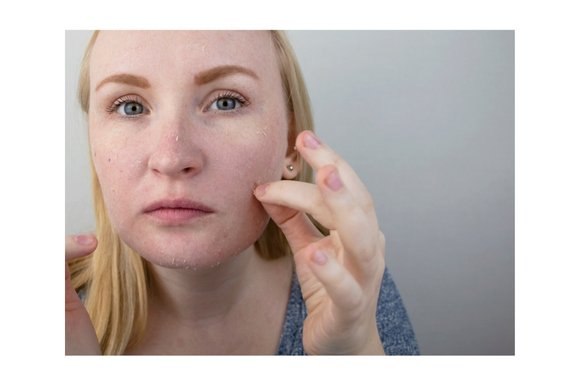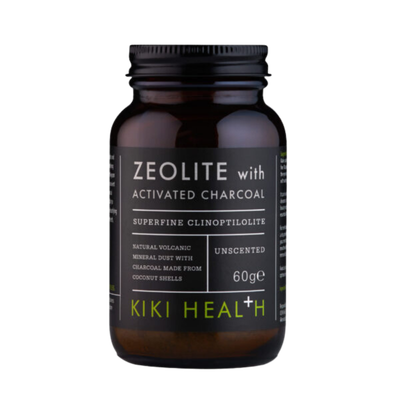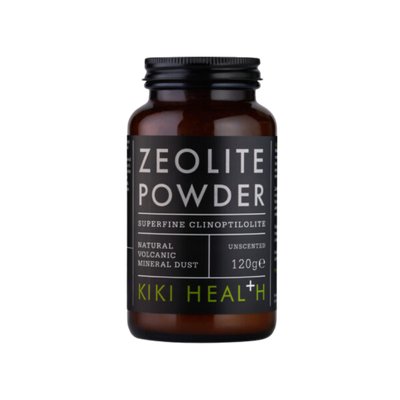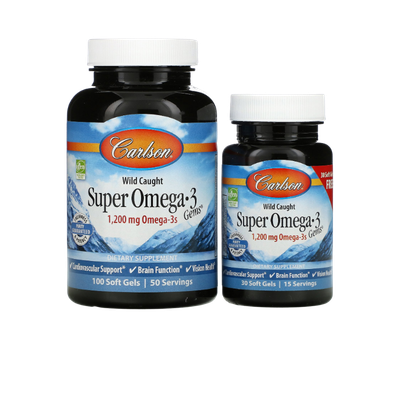Kaip Sustiprinti Širdį: Kardiologų Patikrinti Metodai Be Vaistų
Kasmet pasaulyje nuo širdies ir kraujagyslių ligų miršta apie 17 milijonų žmonių, ir šios ligos išlieka pagrindinė lietuvių mirties priežastis. Tačiau gera žinia ta, kad…

The skin is the largest organ of our body, performing an extremely important barrier and protective function. Healthy skin easily protects us from harmful or dangerous environmental factors, such as adverse weather, chemicals, dangerous infectious agents.
Since the condition of our skin is very important to our overall appearance, it is very important to take care of it. Have you ever wondered why your skin is dry? And what should you do to change that?
Dry skin is a condition characterized by flaky, itchy or cracked skin. This condition can occur for a variety of reasons. Maybe your skin is naturally dry, or the dryness only occurs occasionally.
Dry skin mostly lacks sebum, which is secreted by the glands in the skin, the lack of fatty substance leads to a constant feeling of dryness, it is felt even after applying a moisturizing cream. People with dry skin often face increased skin sensitivity, which complicates skin care, as products need to be chosen very carefully.
This type of skin is not prone to acne, and the pores are less clogged, but dry skin is prone to wrinkles, aging and sagging.
For those with dry skin, it is very important to constantly moisturize and nourish it, to pay attention not only to the right cosmetics, but also to nutrition, to drink enough fluids.
Dry skin changes the texture of the skin from soft to rough. This can cause the skin to become itchy or discolored. You may experience patches of dry skin, which are small areas of dry skin, or dry skin may cover a larger area of skin. Dry skin is usually harmless and only causes temporary discomfort until you can rehydrate your skin with a moisturizer.
Very dry skin is fragile and easily flakes or cracks, which can turn into a painful wound. In case of skin soreness due to dry skin, treat the skin as you would a cut or wound to prevent infection.
All of us can experience dry skin. However, there are several factors that can make this condition more realistic:
Most often, we feel the dryness of the skin during the cold season, but the skin can become dry due to other factors as well.
Snow, wind and cold can have a big impact on our skin, especially when it goes from cold weather to warm weather. Temperature differences cause the skin tissues and the blood vessels that feed them to expand and contract extremely quickly, resulting in redness, dryness, and flaking. Heat. Central heating, wood-burning stoves, heaters and fireplaces reduce humidity, which also increases the likelihood of dry skin.
If you consume too little water, vegetables and fresh foods, the skin lacks the substances it needs, as a result, its protective barrier weakens and collagen disappears.
It is very important to choose the skin care products you use responsibly. It is important not to choose products that have a lot of unnecessary fragrances and unnatural components in their composition: not only do they not help restore moisture to the skin, but they can even dry it out and irritate it even more.
The skin, like other body organs, needs vitamins and minerals, and their deficiency often manifests itself in various ailments. Dry skin can be a signal that the body lacks some substances.
Dry skin can be caused by hormonal disorders (menopause), thyroid, various skin diseases such as atopic dermatitis, psoriasis, etc., as well as diseases of the digestive or nervous system.
Although dehydrated skin and dry skin are often confused, they are actually different skin problems. Dehydrated skin lacks water and is a temporary skin condition, while dry skin lacks natural oils and is a skin type.

Dry skin usually does not have a major impact on your health. However, when left untreated, dry skin can cause:
These complications are most likely when your skin's defense mechanisms are severely compromised. For example, very dry skin can cause deep cracks or fissures that can open and bleed, allowing bacteria to enter.
Create a daily skin care routine. Do not rub the skin with rough towels, do not use sharp, unnatural products. Exfoliate your skin once a week. Use moisturizing and nourishing body care products.
Moisturize. Moisturizer retains water and helps maintain a healthy skin barrier. Use moisturizer throughout the day, especially on your hands.
Before going outside, even on cloudy days, use a moisturizer with sunscreen or a broad-spectrum sunscreen with an SPF of at least 30. Apply sunscreen liberally and reapply every two hours, or more often if you're swimming or you sweat
Balance your diet. In order for the skin to have enough moisture, you need to drink a lot of water, consume food enriched with Omega-3 fatty acids: fatty fish, avocados, olive oil, chia and hemp seeds, flax seeds, nuts. Drink when you are thirsty. Drink caffeine-free beverages daily to keep all body tissues, including the skin, well hydrated.
Limit exposure to water. Avoid taking a long shower or lying in a hot bath - the washing water should be warm, because hot water dries the skin, and too cool - makes it rough. The optimal water temperature for swimming should be around 37-38 degrees, and the process itself should last no longer than ten minutes.
Use a mild cleanser or allergen-free soap. Try a soap-free cleansing cream or shower gel. Alternatively, use an unscented moisturizing soap without alcohol or allergens (hypoallergenic soap), especially if you wash your hands often. Rinse thoroughly and dry. Apply the moisturizer while the skin is still damp.
Choose cleansers that have an oil base, because such products will not only moisturize the skin, but also strengthen the skin barrier.
Protect skin. Cover up as much skin as possible in cold or windy weather. Harsh weather can be particularly drying to the skin. Scarves, hats, and gloves or mittens help protect skin when outdoors.
Bathe babies carefully. Usually, a detergent used every 1-2 weeks is enough to bathe babies. Otherwise, bathe them in water only. However, clean the diaper area after each diaper change. While the skin is still wet, apply a thin layer of petroleum jelly.
If you notice very sudden dryness of the skin, sores or painful cracks, contact specialists who will help you discover the reasons for this: perhaps you are dealing with hormonal changes in the body or you have other problems that also affect the condition of the skin.
Kasmet pasaulyje nuo širdies ir kraujagyslių ligų miršta apie 17 milijonų žmonių, ir šios ligos išlieka pagrindinė lietuvių mirties priežastis. Tačiau gera žinia ta, kad…

Artificial intelligence in medicine has made impressive progress – it has already successfully passed medical licensing exams and can handle internal medicine cases. Even more impressive is that special…
The human heart beats an average of more than 2.5 billion times during a lifetime. This amazing organ works tirelessly to maintain a vital pulse rhythm, the rate of which (pulse rate)…

KIKI Health Zeolitas - Ceolitas, milteliai, 60 g

Trace Minerals Mega Magnesium 400 mg. Liquid with minerals, 118 ml.

KIKI Health Zeolitas - Ceolitas su aktyvuota anglimi, milteliai 60 g.

KIKI Health Zeolitas - Ceolitas, milteliai, 120 g.

SUPER OMEGA-3 - norvegiški žuvų taukai su Omega-3, didelė koncentracija, 100+30 kapsulių
| Cookie | Duration | Description |
|---|---|---|
| cookielawinfo-checkbox-advertisement | 1 year | Šį slapuką nustato GDPR Cookie Consent papildinys. Slapukas naudojamas išsaugoti vartotojo sutikimą dėl slapukų kategorijoje „Analitiniai“. |
| cookielawinfo-checkbox-analytics | 11 mėnesių | Šį slapuką nustato GDPR Cookie Consent papildinys. Slapukas naudojamas išsaugoti vartotojo sutikimą dėl slapukų kategorijoje „Analitiniai“. |
| cookielawinfo-checkbox-functional | 11 mėnesių | Slapukas nustatomas pagal GDPR slapukų sutikimą, kad būtų įrašytas vartotojo sutikimas dėl slapukų kategorijoje „Funkciniai“. |
| cookielawinfo-checkbox-necessary | 11 mėnesių | Šį slapuką nustato GDPR Cookie Consent papildinys. Slapukai naudojami saugoti vartotojo sutikimą dėl slapukų kategorijoje „Būtini“. |
| cookielawinfo-checkbox-others | 11 mėnesių | Šį slapuką nustato GDPR Cookie Consent papildinys. Slapukai naudojami saugoti vartotojo sutikimą dėl slapukų kategorijoje „Kiti“. |
| cookielawinfo-checkbox-performance | 11 mėnesių | Šį slapuką nustato GDPR Cookie Consent papildinys. Slapukai naudojami saugoti vartotojo sutikimą dėl slapukų kategorijoje „Vykdymas“. |
| elementor | never | Šį slapuką naudoja svetainės „WordPress“ tema. Tai leidžia svetainės savininkui realiuoju laiku įdiegti arba keisti svetainės turinį. |
| viewed_cookie_policy | 11 mėnesių | Slapuką nustato GDPR Cookie Consent įskiepis ir jis naudojamas norint išsaugoti, ar vartotojas sutiko, kad būtų naudojami slapukai, ar ne. Jame nesaugomi jokie asmens duomenys. |
| Cookie | Duration | Description |
|---|---|---|
| _ga | 2 metai | _ga slapukas, įdiegtas Google Analytics, apskaičiuoja lankytojų, seansų ir kampanijos duomenis, taip pat seka svetainės naudojimą svetainės analizės ataskaitoje. Slapukas išsaugo informaciją anonimiškai ir priskiria atsitiktinai sugeneruotą skaičių unikaliems lankytojams atpažinti. |
| _ga_JWS80V051Z | 2 metai | Šį slapuką įdiegė Google Analytics. |
| omnisendSessionID | 30 minučių | Šį slapuką nustato teikėjas Omnisend. Šis slapukas naudojamas unikaliam seanso ID nustatyti. Slapukas statistiniais tikslais renka informaciją apie lankytojų elgesį svetainėje. |
| soundestID | sesijos metu | Šį slapuką nustato teikėjas Omnisend. Šis slapukas naudojamas norint nustatyti, ar lankytojas svetainėje yra naujas, ar lankytojas lankėsi anksčiau. |
| Cookie | Duration | Description |
|---|---|---|
| omnisendAnonymousID | 1 year | Šį slapuką nustato teikėjas Omnisend. Šis slapukas naudojamas išsaugoti vartotojo veiksmą svetainėje su unikaliu ID. Slapukas užšifruoja lankytojo duomenis, kad būtų apsaugoti naudotojo duomenys. |
| soundest-views | sesijos metu | Aprašymas negalimas. |
| woocommerce_recently_viewed | sesijos metu | Aprašymas nepasiekiamas. |
